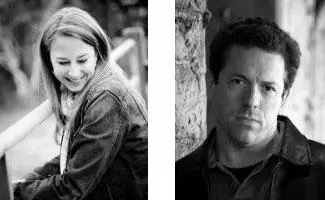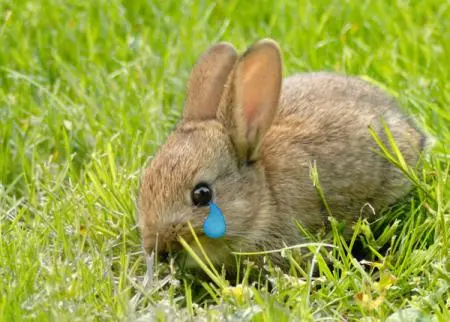Usually, when Richard and I sit down to talk books for Prose & Conversation, it's early-ish in the day. This time, for Denis Johnson's short story collection, Jesus' Son, it was late at night, and for two writers with families and kids and jobs, that meant it was time for our bleakest, most candid, and sometimes silliest, conversation yet. Read on for thoughts on death and dying, the suddenness with which they can occur, and our take on one of the most lyrical, beautifully dark books we've yet read.
Richard: What may be one of the most talked about and taught collections of linked short stories, Jesus' Son by Denis Johnson is a series of Southern gothic tales that are dark, strange, surreal, haunting, emotional and powerful. It's definitely a favorite of mine. And even though it's only 160 pages, I still have like 15 Post-It notes in it. First, I'll ask you Leah, did it live up to the hype, did you love it? I know it's sad, but I see hope at the end, everyone doesn't die. But damn, those bunnies. So many scenes that will stay with me forever. Your thoughts, in general?
Leah: In general, to be honest, it blew my mind. Sometimes in good ways, other times in gut-wrenching ways. It broke my heart. It made me feel bleak and grim. It somehow even made me laugh a couple (not many) times. I highlighted at least 97 million sentences because they were so dense and powerful and intense....
I'm going to have to read it again. Let it sit for a few months. Let it fester. Then read it again.
Richard: Yeah, I read it probably every year. It's short, and I always find new gems. There are so many great sentences. I did laugh, several times, and it's definitely bleak throughout, with some very powerful endings. I'd love to highlight a few stories and passages, see if we liked the same things, and see which ones resonated with you. Cool?
Leah: Absolutely. Let's do this.
Richard: The first story, "Car Crash While Hitchhiking."
The ending really is so cool, not only powerful but addressing you directly, with "It was raining. Gigantic ferns leaned over us. The forest drifted down a hill. I could hear a creek rushing down among the rocks. And you, you ridiculous people, you expect me to help you."
Throughout I love the surreal voice, but what I dig here, I really love the echo of that last line. Because so often, when reading, WE ARE looking for salvation—for meaning, for lessons, for inspiration. And of course, the protagonist is just a mess.
The whole first story is him expecting the disaster, and when it comes, we are not shocked. It's very creepy, but also poetic, all of his stories are lyrical, for sure, and dense.
Leah: So lyrical. That's such a great word. It reminds me of when we read Bradbury last spring. The sentences are so musical, it's like reading a song sometimes. But these are like...hmm....Velvet Underground. Bradbury was more like, oh, I don't know...a darker James Taylor or something like that.
Richard: Great observation.
Leah: And here's a confession: it took me about three or four stories to realize they were, in fact, all the same protagonist. That was an entirely new experience for me.
Then, I had to go back and re-read a few things, because I couldn't believe all these things could happen to the same guy. Remember, I'm the sweet and innocent one. And this! All the drugs! All the violence! There's a man with a knife in his eye, for God's sakes!
Richard: Yeah, that's a neat trick of his. Instead of like in Knockemstiff, where it's a shared world, with sometimes repeating protagonists, this is the same guy.
Leah: I have no idea what you just said. Knockemstiff?
Richard: Donald Ray Pollock's Knockemstiff. Haven't read it? Like Winesboro, Ohio. Linked stories in the same world. Or Jennifer Egan's Goon Squad.
Leah: Okay. I'm with you now. Or like Stephen King's worlds colliding sometimes.
Richard: Knockemstiff is amazing. Met DRP when he opened up for Palahniuk on tour. Great guy, too.
Yeah, good call about the Dark Tower. ALL THINGS SERVE THE BEAM.
Leah: Exactly. I'd just never seen it done in a short story collection. Which brings me to....I was an English major, back in the day, but nowadays? I don't read much in the way of short stories. Usually only when my friends release books of them. Isn't that weird?
Richard: That is weird. I love short stories. I love that Johnson opens with that second-person and ends with it. Here's the last line of the book, the story, "Beverly Home":
All these weirdos, and me getting a little better every day right in the middle of them. I had never known, never even imagined for a heartbeat, that there might be a place for people like us.
Sweet ending, with some hope there. And he pulls the reader in, too. I love that.
Leah: Yes. To me, that was the sweetest story. He grows so much from the vagabond druggie he was in the beginning. By the end, you see him start to care for people. I love how he includes actual text from the newsletter the narrator is writing for the people in the...I guess it's a hospice of sorts....where he's working. You can see him healing himself, comparing himself to the illness around him.
It's funny. I don't have “Beverly Home” highlighted, almost at all. I couldn't pause to highlight. I loved it too much.
Richard: For sure, the healing. He's gone through a lot. Did you have a favorite story? I know what mine is.
Leah: I loved the dialogue of “Steady Hands at Seattle General.”
"You're not going to write about me."
"Hey. I'm a writer."
"Well then, just tell them I'm overweight."
It's this conversation that spans pages, and it flows and is so easy to follow, and there are no dialogue tags. That's hard to pull off!
I was impressed.
Richard: Yeah, there were so many funny sections, while it's also so bleak and horrific!
Leah: I also loved the knife-in-the-eye story. I need to find the title. What's your fave?
Richard: Definitely "Emergency" for so many reasons. Starts in the hospital, with the knife in the eye, and then his friend Dougie just pulling it out (off stage, no less) and then the ride in the truck and then the bunnies, the hallucinations. Really, it's got everything I love in a story, so amazing.
Leah: Thank you. There's my title. I loved “Emergency” too!
Yes. The bunnies. For you all reading this, there's a scene in which they (maybe) kill a rabbit (they're on all the drugs!), and find fetal bunnies in its stomach...and weird things progress from there.
But you can't trust your narrator! You have no idea what's real and what's not!
It's frustrating and annoying and brilliant. Ugh.
Richard: The first time I read about the bunnies, I think I cried. It was funny at first, when Dougie jokes, "I'm not eating those." Which OF COURSE THEY AREN'T you stoner. But then later, of COURSE THEY FORGET about them. Funny, sad, beautiful, trippy, all of that.
Leah: Do you think the bunnies really existed?
Richard: I do.
Leah: Aw. I convinced myself they were hallucinations.
Now I'm sad. Thanks, Richard. Thanks bunches.
Bunches of dead bunnies.
Richard: I've had some moments where I'm really "altered" and things go bad, and at first it's funny, then it's so sad, you just can't take it, and yet, you're so high, you just move on. We've been driving 500 miles. No we haven't, it's been two blocks. So funny.
But I think you can take that story however you like it, really.
Leah: Yeah, it gets almost absurdist sometimes.
In my world, the bunnies didn't die because they NEVER EXISTED RICHARD SHUT UP.
Richard: Ha, okay, Leah, no dead bunnies for you. They never existed.
One aspect I wanted to touch on was the surrealism in the stories, the hallucination, the poetic and lyrical aspects. Got a few lines for me?
Leah: Yep, sure do.
Here's a good one. He's talking about a bar called the Vine at which he spends far too much time.
There were many moments in the Vine like that one — where you might think today was yesterday, and yesterday was tomorrow, and so on. Because we all believed we were tragic, and we drank. We had that helpless, destined feeling. We would die with handcuffs on. We would be put a stop to, and it wouldn't be our fault. So we imagined. And yet we were always being found innocent for ridiculous reasons.
Richard: Love it. That feeling of not being grounded in time.
Leah: I loved it so much. I mean, even without being drugged out, we so often feel out of control or unworthy....and yet we're always found innocent.
Richard: For sure.
Leah: We always keep on going. It's crazy.
Richard: There's another little line about when he coughs he sees fireflies. I wonder if Craig Clevenger stole that from DJ for Dermaphoria? Homage, I mean.
Leah: Ha, maybe. Craig, if you read this, please feel free to respond.
Richard: How about this. In "Two Men" he says, "...the buds were forcing themselves out of the tips of branches and the seeds were moaning in the gardens." Loved that. Kind of reminds me of Burroughs.
Leah: Oh, man, yes. I read Burroughs back in high school and that floaty/weirdo imagery stuck with me. You're absolutely right.
I could do this all night. Just retype his words. They're so gorgeous.
They deserve retyping.
Richard: That subtle violence of force paired with the birth of the flower, the moaning making it almost sexual. So many great moments like that. There was a scene in "Emergency" where they got confused with the snowstorm and the drive-in movie theater, that was so slippery, loved that passage, too.
It's a dense book for sure, you really need to slow down and savor every word. An economy of words compared to the lyricism of Bradbury, for example.
Leah: Yes. Like I said, I want to re-read it, but I need to give it time to sit first. Can I share a bleak (maybe, for me, the bleakest) passage?
Richard: Sure. It may tie into the one other thing I wanted to mention, which are the endings to his stories, so many really were BAM, right between the eyes. GO!
Is it the one about his mother?
Leah: No. It's this one:
Think of being curled up and floating in a darkness. Even if you could think, even if you had an imagination, would you ever imagine its opposite, this miraculous world the Asian Taoists call the 'Ten Thousand Things'? And if the darkness just got darker? And then you were dead?
What would you care? How would you even know the difference?
Richard: That is pretty heavy.
It's really our greatest fear, right?
Leah: When I was very small, I was terrified of dying (who isn't?). I remember thinking it would be this black void, and I'd be alone. I once told my mother that as long as she was there with me, holding my hand, I could handle the void.
That passage took me back to those long nights, spent terrified of the black void.
I've been having weird, unsettling dreams ever since reading it.
So to me, that passage was the hardest. It made me feel......black.
Richard: The void. Wow. Yeah, you're giving me chills. Reminds me of Stephen King's story, "The Jaunt" right? It's why we make art and have children, partially, so we won't be forgotten, won't disappear.
Leah: So true.
Richard: Thanks for bringing the room down, Leah.
Leah: I know, right?
The next line I have highlighted was because it made me laugh. It's on the same page. "It didn't matter that the driver was a blind man. He felt the future with his face."
So there's that. He felt the future with his face.
I mean, how ELSE do you feel the future, right?
Richard: HA. That is funny for sure. Isn't it weird how he does that? These totally original juxtapositions.
With your face, of course.
Leah: Yeah, who does that?
Richard: DJ does. While tripping his ass off.
Leah: Bahahaha. So, what was the passage about his mother, now that I've cheered you back up?
Richard: There were a few endings I had marked.
Leah: Go!
Richard: There was the one where his friend OD'd, and he says, "I'm still alive." Here's that passage. If you've ever been around seedy people or situations like this, man, it's how it happens. Just, OOPS, he's dead.
The people with him, all friends of ours, monitored his breathing by holding a pocket mirror under his nostrils from time to time, making sure that points of mist appeared on the glass. But after a while they forgot about him, and his breath failed without anybody's noticing. He simply went under. He died.
I am still alive.
I mean, damn.
That's from "Out on Bail."
Leah: Oh yes. I remember the moment I read that. I was in the dark, with my kindle in the white-on-black mode, and I sat up in bed.
Because damn. That almost knocked me out.
But remember: Miss Innocent over here. I've never been around this stuff. Is it really like that????
Richard: Sure. Had a friend die in college, fell over a railing and drowned in a foot of water. Saw a guy parachute in St. Louis when I was hiking downtown and go SPLAT a my feet. Some crazy stuff. Sometimes with a whimper, sometimes with a bang.
Right at the base of the arch, I was ten.
Leah: EEEEK!! Okay, remind me never to hang out with you. At least not in person. That's horrifying!
Richard: Hey, in all my years, I'm surprised it wasn't more.
Leah: Ha! You're so old.
Richard: OLD.
I want to talk about two other stories but don't want to ruin the endings. Do you think the mother and the abortion, those two examples will ruin anything, or should I just pick one?
Leah: Pick one.
Richard: Okay, I'll avoid the abortion, because, it's obvious the tragedy there.
And yes, I've seen all sides of THAT coin. But we won't get into that.
Leah: Hmm....
Richard: Instead, the end of "Work." Because it snuck up on me.
I saw her much later, not too many years ago, and when I smiled she seemed to believe I was making advances. But it was only that I remembered. I'll never forget you. Your husband will beat you with an extension cord and the bus will pull away leaving you standing there in tears, but you were my mother.
I mean, DAMN.
Leah: GAH YES. Such a forlorn image. I hated moments in this book, as much as I loved others. I hated this one. Especially given the media lately and the focus on abuse...it felt so vivid.
Unsettling.
Yes. That's the word for much of this book. Unsettling.
We've already used up a lot of words for this column; may I add one last happy moment?
Richard: For sure. But, you know, half empty (bleak, suffering, abuse) or half full (surviving, evolving, changing).
Yes! Go for it.
Leah: It's quick.
Most days in Seattle are grey, but now I remember only the sunny ones.
Richard: That's your happy one? HA.
Leah: It's like...you go through a bad time, and looking back, you remember only the good parts. You whitewash your own history. I spent a year, miserable, living in Mississippi, but now I look back with nostalgia for the simplicity of my life then (and the closeness to New Orleans but whatever).
Such a simple illustration of what we do to ourselves when we remember our pasts.
Richard: Good point, I see what you're saying there.
[Editor’s note: Here followed a lengthy, redacted conversation about elfs and elves and our selfs and ourselves due to a silly and embarrassing typo by Leah. You’re welcome for the cut. Because it was late at night and the conversation was ridiculous. Heh.]
Richard: So, I think we're winding down, getting slap-happy now. Summation, stars, thoughts, rating, overview, etc.? You first or me?
Leah: I'll go!
That last line I just quoted really sums it up for me. I'm going to set this book aside for a while. In six months or so I'll forget the bleakness, the sadness, and all that. I'll remember the parts that made me smile. THAT'S when I'll re-read it, just for the joy of reading his language again.
And then I'll be all depressed all over again...
You?
Richard: This bittersweet collection of linked stories is a lyrical masterpiece, a thin volume that not only should be read, but treasured and re-read every year, to remind us of how hearty and yet how fragile we all are. It's a classic. 5/5 or 10/10, A+ in my opinion.
Leah: I couldn't agree more, Richard. I couldn't agree more.
Richard: Thanks. Until next time then? What's up then, David Sedaris maybe?
Leah: Ha! Yes. Or....dun dun dun...I'm seriously considering throwing Pride and Prejudice into the mix. But hear me out! It's a classic work of satire, written by a woman! Don't write it off, man!
Richard: Um yeah, so Sedaris it is. Fantastic!


About the author
Leah Rhyne is a Jersey girl who's lived in the South so long she's lost her accent...but never her attitude. After spending most of her childhood watching movies like Star Wars, Aliens, and A Nightmare On Elm Street, and reading books like Stephen King's The Shining or It, Leah now writes horror and science-fiction. She lives with her husband, daughter, and a small menagerie of pets.









